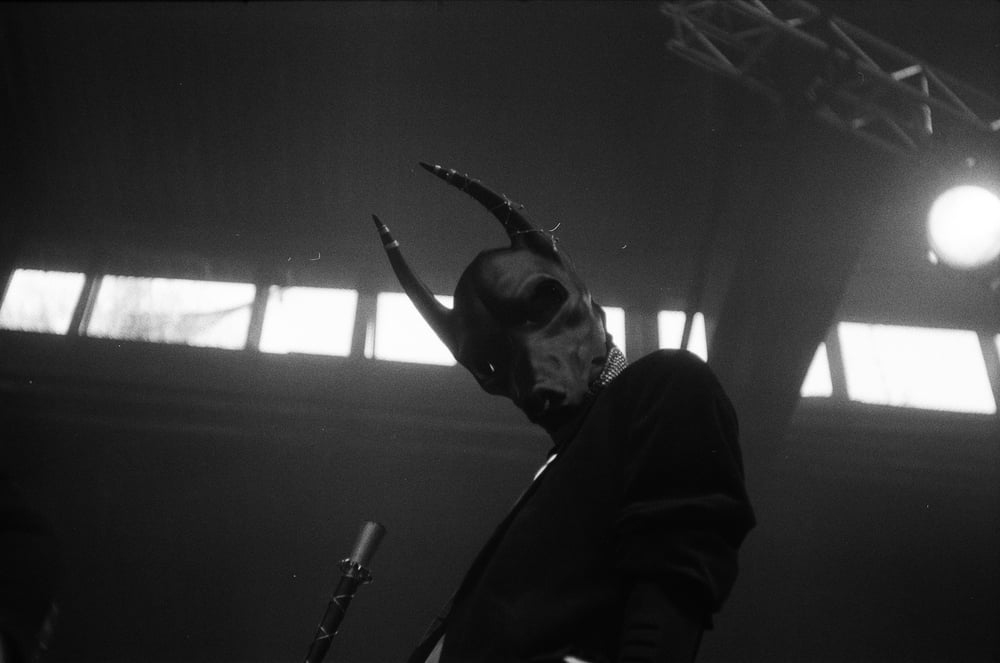Great Opening Lines and Why They Work So Darn Well

It is a truth universally acknowledged that an article on great opening lines must be in want of a spoofed Jane Austen quote.
Actually, that approach might be a little played out, making it a less-than-stellar opener. But that’s okay, because today we’re here to learn. It takes a lot of writing and rewriting to find the perfect first sentence.
So how do you know when you’ve landed on a gem?
You’re about to find out. Using several examples of exceptional novel openers, we’re going to explore:
- What makes an opening line great
- Four types of first lines
- How to craft your own unforgettable story starter
First, let’s establish why we care about any of this.
Why Great Opening Lines Matter

The answer to this is delightfully straightforward:
Your opening line matters because it’s your first opportunity to draw the reader in.
Great opening lines entice the reader to keep going—to immerse themselves in your story’s world. A disappointing first sentence, on the other hand, might inspire them to set the book back on the shelf.
So how do you make sure your opener is super engaging?
First you need to understand this:
What Makes an Opening Line Great?

According to Stephen King, “An opening line should invite the reader to begin the story. It should say: Listen. Come in here. You want to know about this.”
But how exactly do you achieve that effect?
Here are a few things a stellar opening line tends to do.
Establishes a Distinctive Voice
A solid opener immediately introduces the reader to their narrator… or at least to their narrator’s voice. Consider this classic story starter from David Copperfield:
“Whether I shall turn out to be the hero of my own life, or whether that station will be held by anybody else, these pages must show.”
Right away, you have a sense of the narrator’s personality and attitude. That tells you a lot about how you’re going to experience the story. Give your reader an engaging voice that sucks them in.
Sets the Tone
While voice is more about personality, tone is a reflection of mood and attitude. A novel’s tone can be defined with words like “chilling,” “romantic,” and “relaxed.”
A clear sense of tone helps the reader anticipate all the fun that lies ahead. Like this:
“It is a truth universally acknowledged, that a single man in possession of a good fortune, must be in want of a wife.” –Pride and Prejudice by Jane Austen
Dry and snarky. We’re in for a good time.
Creates a Sense of Time or Place

You can use your opening line to suck the reader into the world. This is an especially good idea if your novel’s setting is either interesting or crucial to the plot. Like this:
“When I finally caught up with Abraham Trahearne, he was drinking beer with an alcoholic bulldog named Fireball Roberts in a ramshackle joint just outside of Sonoma, California, drinking the heart right out of a fine spring afternoon.” –The Last Good Kiss by James Crumley
How could you not read on?
Sparks Curiosity
“It was a wrong number that started it, the telephone ringing three times in the dead of night, and the voice on the other end asking for someone he was not.” –City of Glass by Paul Auster
I have so many questions, don’t you? What exactly did this wrong number start? Who was the voice on the other end, who were they asking for, and who actually picked up the phone?
A curiosity-inducing opening line will almost always force your reader to keep going.
Introduces an Intriguing Character, Conflict, or Perspective
Seems like a tall order for just one li’l opening line, I know. But it is possible to give the reader a glimpse of the person, problem, or perspective that will be driving the story. Felipe Alfau does it in eight words:
“The moment one learns English, complications set in.” –Chromos
That’s a viewpoint that’s almost guaranteed to catch the reader of an English language novel off-guard. It also plunges the reader into the experience of the book’s characters: Spanish immigrants trying to stay connected to home while building lives in New York City.
Types of Opening Lines That Work Every Time
Now you know how good opening lines welcome the reader into the story. How can you make sure that first sentence also grabs their attention?
Here are a few types of openers that, when done well, rarely fail.
Shocking Opening Lines

A shocking opener doesn’t have to be violent or offensive. It’s enough to surprise the reader with an unusual situation, a surprising turn of phrase, or the suggestion that a horrifying secret is about to be revealed.
Here are some great examples of alarming first lines.
Examples
“They shoot the white girl first.” –Paradise by Toni Morrison
“All children, except one, grow up.” –Peter and Wendy by James M. Barrie
“Every summer Lin Kong returned to Goose Village to divorce his wife, Shuyu.” –Waiting by Ha Jin
“You better not ever tell nobody but God.” –The Color Purple by Alice Walker
Humorous Opening Lines

Humor sparks delight, and delight makes folks want to stick around. So putting a dash of comedy in your novel’s first sentence can be a good move as long as it fits your story’s tone.
If your book is a comedy, a humorous opening line is practically mandatory.
Examples
“Mr. and Mrs. Dursley of number four, Privet Drive, were proud to say that they were perfectly normal, thank you very much.” –Harry Potter and the Sorcerer’s Stone by J.K. Rowling
“The story so far: In the beginning the Universe was created. That has made a lot of people very angry and been widely regarded as a bad move.” –The Restaurant at the End of the Universe by Douglas Adams
“If you are interested in stories with happy endings, you would be better off reading some other book.” –The Bad Beginning by Lemony Snicket
“There was a boy called Eustace Clarence Scrubb, and he almost deserved it.” –The Voyage of the Dawn Treader by C.S. Lewis
Thought-Provoking Opening Lines

Does your novel have a profound theme? Does one of your characters have a thought-provoking perspective? Try working it into your novel’s first words.
Craft this story starter to inspire reflection or curiosity. Avoid anything that’s preachy or teachy or reachy. Keep it sincere and interesting, like these folks do:
Examples
“Happy families are all alike; every unhappy family is unhappy in its own way.” –Anna Karenina by Leo Tolstoy
“No live organism can continue for long to exist under conditions of absolute reality; even larks and katydids are supposed, by some, to dream.” –The Haunting of Hill House by Shirley Jackson
“A story has no beginning or end; arbitrarily one chooses that moment of experience from which to look back or from which to look ahead.” –The End of the Affair by Graham Greene
“It was the happiest moment of my life, though I didn’t know it. Had I known, had I cherished this gift, would everything have turned out differently?” –The Museum of Innocence by Orhan Pamuk
Scene-Setting Opening Lines

Another option is to plunge your reader into the circumstances of your story immediately. Where are they? What’s going on? How does it feel to be in this world?
The trick is to focus on what’s fascinating, remarkable, or establishes the tone. “Emma lived in a house with a white fence and a two car garage” is… well, probably the worst opening line I’ve ever written.
Here are better ones:
Examples
“It was a queer, sultry summer, the summer they electrocuted the Rosenbergs, and I didn’t know what I was doing in New York.” –The Bell Jar by Sylvia Plath
“In a hole in the ground there lived a hobbit. Not a nasty, dirty, wet hole, filled with the ends of worms and an oozy smell, nor yet a dry, bare, sandy hole with nothing in it to sit down on or to eat: it was a hobbit-hole, and that means comfort.” –The Hobbit by J.R.R. Tolkien
“The Santa Anas blew in hot from the desert, shriveling the last of the spring grass into whiskers of pale straw.” –White Oleander by Janet Fitch
“It was a bright cold day in April, and the clocks were striking thirteen.” –Nineteen Eighty-Four by George Orwell
How to Write Great Opening Lines

Feeling inspired to get creative and craft your own brilliant opening line? Here are some tips to help you crush it.
Tips and Tricks for Crafting Your First Sentence
Zero in on your novel’s best feature. What will readers love most about your novel? The wonder-inducing fantasy setting? The unconventional philosophies of your outrageous protagonist? The world-shattering themes? Introduce the grabbiest element of your story right away.
Raise questions. Share information that immediately sparks a question in the reader’s mind. Where are those gunshots coming from? Why is Michigan all dystopian now? Who is this single man in possession of a good fortune?
Evoke emotion. Make the reader laugh, inspire awe, freak them out… whatever’s right for your story. Use the opening line to set emotional expectations for your novel.
Show, don’t tell. In other words, use vivid sensory language to help your reader feel like they’ve entered the world of your story instead of just reporting on events.
Common Mistakes to Avoid
Beginning at the beginning. Start your story when your protagonist is already doing something that matters. Don’t begin with them preparing to do something or waking up in the morning. It’s boring.
Purple prose. This term refers to ornate, flowery prose that draws attention to itself instead of the story. It’s an easy trap to fall into when you’re trying to stun readers with a masterful first line. Resist.
Mismatched voice or tone. Don’t let your narrator be hilarious or profound in your opener if they’ll never be hilarious or profound again. Your reader will feel misled.
Lying lies. On that note, skip the trickery. Don’t introduce a riveting conflict only to reveal that it was all just a dream or false alarm.
Handy-Dandy Exercises
Authors rarely go with their first opening line idea. You’ll probably try many versions before you find one you love. Here are some creative exercises to help you experiment:
- Try each of the four types of story openers we talked about above.
- If you’ve already written your opening scene, scan through to see if you spot one stellar, engaging sentence. What would happen if that was your opener—if you started the story right there?
- Try several openers, each introducing a different aspect of your protagonist’s personality. Maybe one reveals their unique perspective, another focuses on a nervous habit, and another highlights their greatest ambition.
- Do the same exercise, but with different aspects of your novel’s setting.
- Name the central conflict immediately in your opening line. What does that do for your story?
And What Happens After the Opening Line?
Once you knock out that exceptional opening line, you’re gonna need to back it up with a stellar story.
We’ve got a free ebook that can help you do exactly that. This thing is positively packed with great advice from plotting to revising. Download it here.
Need a hand keeping your head together throughout the noveling process? Check out Dabble!
With Dabble, it’s easy to plot your novel, store ideas, draft, and revise. Even better: you can try all of Dabble’s features for free for 14 days. Just click this li’l link and dive in—no credit card required.









